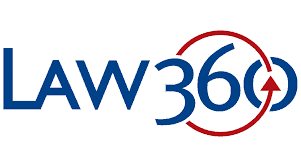Law360 (January 25, 2021, 9:47 PM EST) — The First Circuit’s recent ruling that the federal Wire Act’s prohibition on interstate communications for wagering applies only to sports betting affirmed a narrow view of the 60-year-old criminal law that attorneys say is a major win for the online lottery and gambling industries, even as it highlights the obstacles for the growing legalized sports betting market.
Last week, the appellate court rejected a 2018 U.S. Department of Justice legal opinion that had interpreted the Wire Act’s prohibitions to apply to interstate gambling beyond just sports betting. That DOJ opinion had reversed an earlier 2011 opinion, causing consternation across the gambling and lottery industries, which have expanded online and interstate offerings in the past decade.
“This is a slam dunk for the industry, for the casino and poker industry and for the lottery industry,” said Behnam Dayanim, chair of the advertising, gaming and promotions practice at Paul Hastings LLP. “The appellate court adopted the district court’s reasoning on the scope of the Wire Act in its entirety.”
Still, he noted that the ruling does not address the limitations on sports betting.
“From a sports betting industry perspective, there would still be some potential benefit to modernization of the Wire Act, but that was not at issue in this litigation,” Dayanim said.
Though the U.S. Supreme Court wiped away the primary federal law restricting the legalization of sports betting, the Wire Act continues to stand in the way of sportsbooks operating on a multistate level. The market has developed across states that have legalized interstate operations for online poker, and for casino games between states that have legalized such contests.
The First Circuit’s decision further highlights concerns that mobile and online sports betting runs afoul of the Wire Act, even if bettors must be physically located in a legal state, because of the use of nationwide communications networks.
“It definitely creates a little bit of a dichotomy,” said Blank Rome LLP white collar defense and gambling attorney Dennis M.P. Ehling. “So you have the ability to do interstate wagering on poker or casino games or other games of chance, but not sport. And sport is definitely one of the fastest growing areas of gambling today.”
The 1961 Wire Act was initially passed to combat organized crime. The DOJ’s 2011 opinion finding that it applied to sports betting but not to gambling more broadly arose from a question of how the law interacted with the 2006 Unlawful Internet Gambling Enforcement Act, which sought to allow online gambling in states that chose to legalize it.
At that time, sports betting was illegal in most states and the federal Professional and Amateur Sports Protection Act, or PASPA, prevented new states from legalizing it.
However, sports betting is now legal in 19 states plus Washington, D.C., since the Supreme Court in 2018 struck down PASPA in Murphy v. NCAA . Online and mobile betting has proven to be the most popular among bettors in states where it is legal, by a huge majority.
Attorneys say that while the market is expanding, being forced to operate on a state-by-state basis limits sportsbooks’ growth and increases their risk. Not only could they better consolidate their operations on a regional or nationwide basis, but they could diversify the bettor pool. Sportsbooks tend to see a lot of action on local teams.
“That means that a sportsbook that is confined to a single state might have exposure because of lopsided betting,” Daynim said. “The only way [to address it] is to make the line unrealistic, and if you make it unrealistic it will drive people to offshore illegal sportsbooks.
The challengers to the DOJ’s 2018 interpretation had raised concerns that they could not guarantee that data for online lottery transactions, even if initiated in the state, did not cross state lines through “intermediate routing.” Ehling said that issue continues to be a concern for online and mobile sportsbooks, raising the possibility that someone placing a bet legally in one state could still violate federal law because the transmission may bounce around the network across state lines.
With legal sports betting spreading, attorneys say the Wire Act may need to be modernized to resolve such questions, particularly with states across the country facing budget concerns due to the COVID-19 pandemic.
“Obviously the country needs the tax revenue so I think all signs are go, with the caveat that we have to protect against underage citizens playing and those problem gamblers,” said gambling industry attorney David O. Klein, the managing partner at Klein Moynihan Turco LLP. “It has to be done deliberately with state and federal involvement.”
–Editing by Michael Watanabe.




